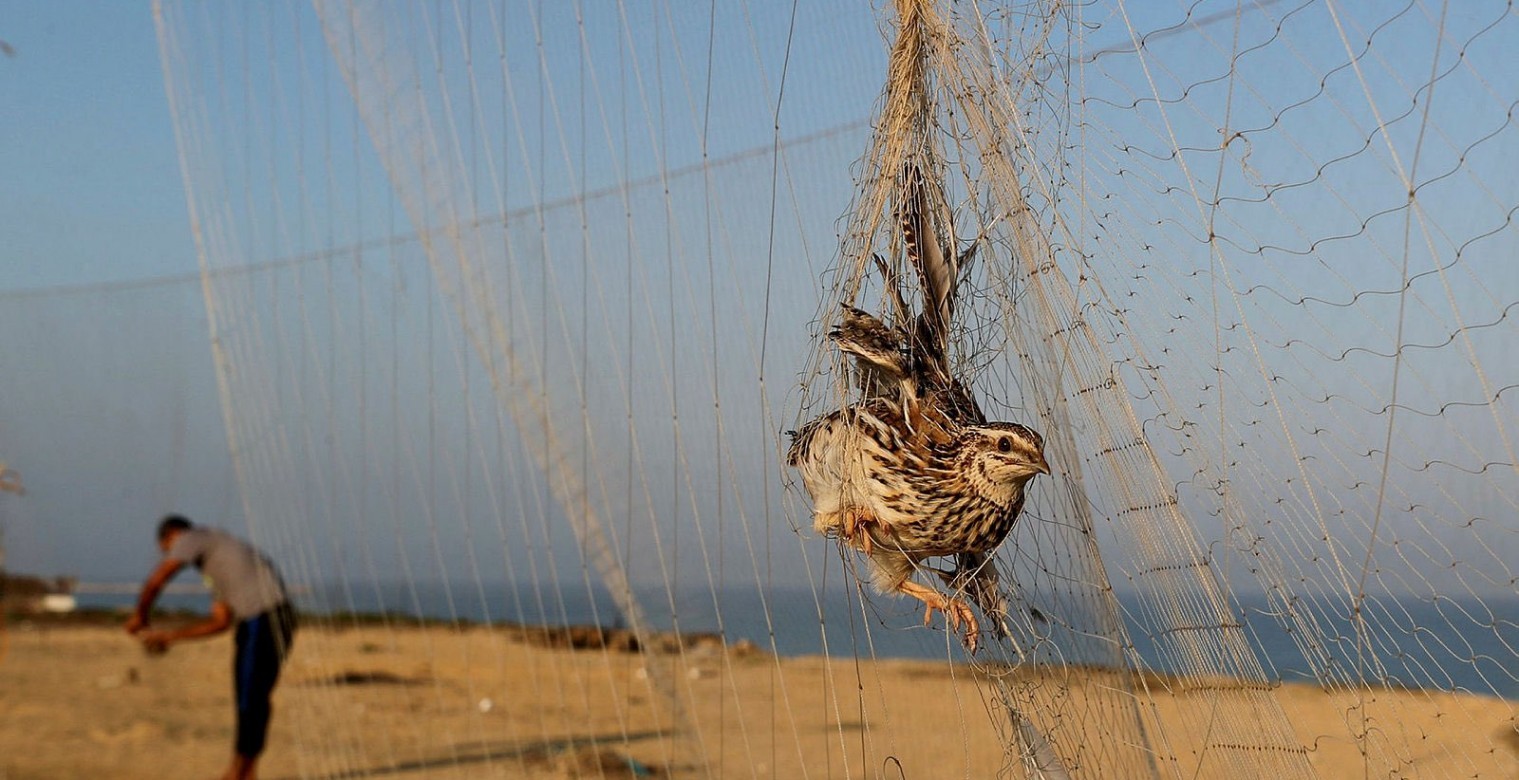The Palestinian, Muhammad Siam, set up a fishing net hanging on wooden poles parallel to the sidewalk of Al-Rasheed Street, west of Deir Al-Balah camp, in the central Gaza Strip, in preparation for receiving the first season of the migratory "quail" bird.
Muhammad, 37 years old, inherited this mission from his father, who used to accompany him on hunting missions. Then he became a friend of these birds that travel thousands of kilometers across the Mediterranean Sea on their annual migration from Europe in search of warm areas.
The man says as he puffs on the smoke of his cigarette on a very humid morning: "I got used to this practice a long time ago. Quail Hunting for me has become more of a habit than a source of livelihood."
The hunter said that the process of fixing the poles is carried out by extending the nets on segmented poles, at a distance of 20 to 50 meters for each segment, with a height of about two meters, and between them there are distances of about 5 meters; so that the bird is in the goal of the net during its transition from water to land.
The work of the quail hunters begins before sunrise every day and continues until about half an hour after sunrise. It's the time of the migratory birds' crossing.
During this period, the hunter "Siam" lies on the western corner of the road overlooking the seashore, and as soon as the bird falls into the net, he rushes to pick it up and put it in a cage.
Most of the time, the hunter carries the cage and walks through the alleys of the camp, heading home to start preparing his six children's meals.
Siam says, with a look of resentment: "In previous years, we used to sell most of the birds, but the hunting season is scarce this year, which is why I prefer feeding them to my children than selling them because the profit return is no longer worthwhile."
Weather and environmental factors play a major role in the decrease in the arrival of these birds in Gaza, in light of the increase in urban sprawl and the scarcity of agricultural areas.
The strange thing is that this hunting season, which lasts for about two consecutive months, is not controlled by any regulations by the authorities concerned with environmental affairs, and in full view of the people who pass through the coastal strip that extends along "40 km."
Legal Article No. (41) of the Palestinian Environment Protection Law issued in 1999 states that "it is prohibited to hunt, kill, or catch birds, wild and sea animals, and fish specified in the executive regulations of this law. It is also forbidden to possess these birds and animals, move them around, sell them, or offer them for sale, dead or alive. It is also forbidden to destroy their nests or destroy their eggs."
According to environmental expert Dr. Abdel Fattah Abed Rabbo, the laws in force in the Palestinian Territories, which are related to the environment and its protection, do not specify any judicial regulations and are generally absent from implementation. This, in turn, has allowed for high rates of poaching in Palestine.



